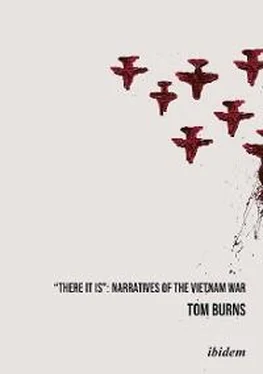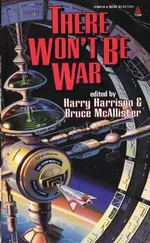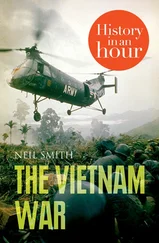The nearly plotless novel (if it can be called that) consists of a collection of stories that are little more than fictional portraits of Americans in “Sarkhan” (Vietnam) and other Asian countries. The Americans are divided into two types: the dedicated and effective representatives of their nation, and the reprehensible “ugly Americans” who seem to be, in the view of the authors, most of the people actually over there in some official capacity—hence, the need for this alarmist tract. The characters belonging to the dedicated group are given individual portraits, but they all turn out to comprise a recognizable if idealized American type, both idealistic and pragmatic, genuinely interested in helping Asians as well as improving the image of their own country abroad. They are all democratic, can-do, plain-spoken men (and one woman) who heartily dislike politicians, officials, and bureaucrats, both American and Asian, regarding them as ignorant, interfering, and indifferent to the lives of native peoples. These “good” Americans invariably learn to speak the native language, take an interest in the national culture and local customs, get out into the countryside to see how people really live, establish warm relationships with them, and, in turn, earn their respect. They tend to distrust large and expensive projects but possess some practical skill that will be useful in improving the everyday lives of the “Sarkhanese” with whom they come in daily contact. As if all this were not enough, none of them have a profit motive but are selfless in sharing their gifts.
The first of these, John Colvin, was an OSS agent in Sarkhan during World War II, when he learned to love the country. He returns after the war to teach the Sarkhanese how to breed cattle, drink milk, make powdered milk, and make use of the by-products of stock-breeding, after which he will sell out his share and leave the country. Framed by a former Sarkhanese comrade who has gone over to the Communists, Colvin is deported. Another example is Homer Atkins, who is “ugly” only in the sense that he is physically homely. An engineer, he builds a simple pump to get water up to higher ground for irrigation, and he democratically shares his idea with the local mechanic of a poor village. Together they work out the technical problem of an apparatus that will use only local, inexpensive materials. Quite soon, the village begins to look like a model enterprising American town, with everyone building or selling the new pump, but Atkins declines to patent his invention. His wife, Emma, who is also homely and good, sets out to correct the bent backs of the old villagers, who have become deformed by using short-handled brooms but have accepted this painful condition as their fate (the immovable Asian mind). Emma, who “was not bound by centuries of tradition,” convinces the villagers to use a long-handled substitute, whereupon the old folks begin to stand up straight, and the grateful villagers build a shrine in honor of the American couple. This condescending, “colonialist” attitude of the authors to native intelligence seems to be invisible to them throughout; their whole approach to winning Asian hearts and minds is absurdly simplistic. The complete trust of the authors in “Yankee ingenuity” does not allow them to suspect, in Neilson’s formulation, that “elite ownership of land, lack of access to education, a corrupt and repressive political system, and a nearly feudal class division are not obstacles to capitalist victory.” 65
One character, Tom Knox, exemplifies how a “good” American can become corrupted and turned into an “ugly” one. An Iowa poultry farmer, Knox is sent to Cambodia as an agricultural expert. He is friendly, serious, non-bureaucratic, and bent on raising the protein level of poor villagers by improving their poultry stock and increasing the egg output. Balked by bureaucrats and politicians with their own priorities, he threatens to return to the US and campaign to congressmen for his simple scheme of improving Sarkhanese daily life at low cost. His fatal flaw of a fascination for the exotic, however, is exploited by evil French and Cambodian diplomats, because their respective governments are more interested in capital-intensive projects like roads and mechanized farms. Knox is bought off by a lavish round-the-world trip, in the course of which he rather improbably forgets his protest and gives into the luxury of seeing the exotic sights.
Knox’s upper-echelon counterpart is Senator Brown, the tough old head of the Senate Foreign Relations Committee, who goes to “Vietnam” (i.e. not Sarkhan) as part of his Asian fact-finding mission, on which he will base his recommendations for the year’s overseas funding. Despite his determination to talk to ordinary people and low-ranking technicians and to bypass the bureaucrats to find out what is really going on, the embassy staff is ready for him, with an exhausting program of long walks and heavy dinners with plenty of wine to slow him down and dull his wits, as well as factual presentations prepared by the staff to misrepresent the actual situation, including photographs of Communist atrocities, and a translator who has been instructed by the ambassador to mistranslate hostile or inappropriate interviewees. All of this is designed to convince the well-meaning senator that the French are winning the war and therefore deserve more US aid.
Other “good” Americans are actually fighting the Communists for Asian hearts and minds, although they too are not being heeded. Father John X. Finian, a Jesuit priest, becomes an anti-Communist missionary in Burma, where he cultivates a small group of nine men and manages to convince them, as he manipulates them, that they are making their own decisions in choosing American over Communist aid. The group’s main triumph is spreading misinformation on the radio after planting a spy at a meeting of the local Communists to discredit them in the eyes of the villagers.
Another eager warrior, Major James (Tex) Wolchek, a veteran paratrooper of World War II and Korea, is ready to drop into Dien Bien Phu with a group of Legionnaires when the news arrives that it has fallen to the Vietminh. Tex accompanies the French on military operations and sees that although they are doing everything right according to the conventional rules of war, they are still losing. The Communists are “fighting by a different rule book,” he points out to the French commander, Major Monet, and this is not a mere metaphor, for the “book” is Mao’s manual on guerrilla warfare, which Tex has read. He acquires a clandestine copy, and he, Monet, and the American Ambassador MacWhite read it aloud together and work out a plan of operation for an attack on a village (although it is unlikely that the two officers would accept the civilian MacWhite on equal terms relating to a military op) in which they presumably turn Mao’s tactics against the Communists and defeat them.
It is absurd to suggest that the French lost the war because they did not read Mao. In fact, they did read him, but, like the Americans who replaced them, they did not seem to realize that the Vietnamese Communists never stressed military action without political motivation, even to their soldiers. In any case, the confused narrative of the battle suggests that Mao´s tactics are hardly the issue, for the French soldiers achieve their victory from superior firepower and the element of surprise—hardly unconventional warfare. When Tex and Monet, based on this single success, try to sell the French and American higher commands on their method, the Eurocentric generals remain unconvinced, not from tactical but racist motives, refusing to accept that Asians could have changed the accepted ways that wars have always been fought. They are shown to be wrong when shortly afterwards the French have to evacuate Hanoi. That the military is blind to what is really happening is shown again in the episode where Homer Atkins informs an incredulous group of French generals of the existence of the Ho Chi Minh Trail. “ Impossible !” they reply.
Читать дальше












